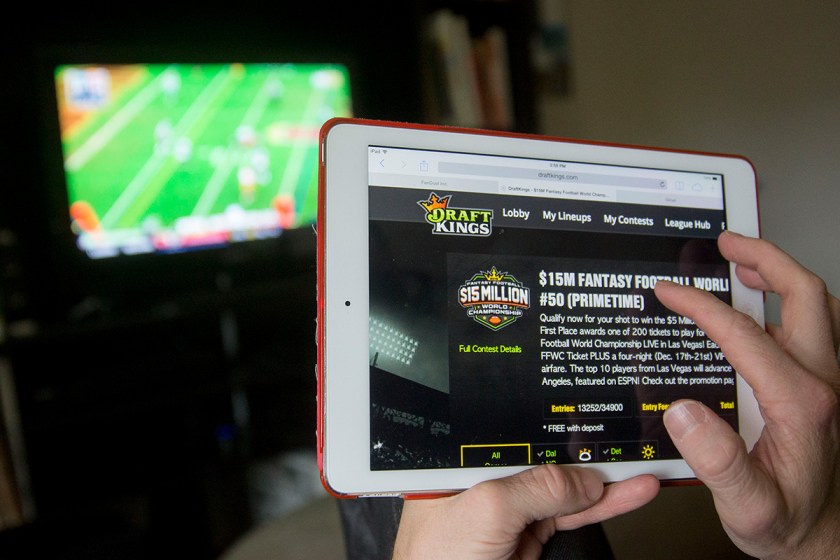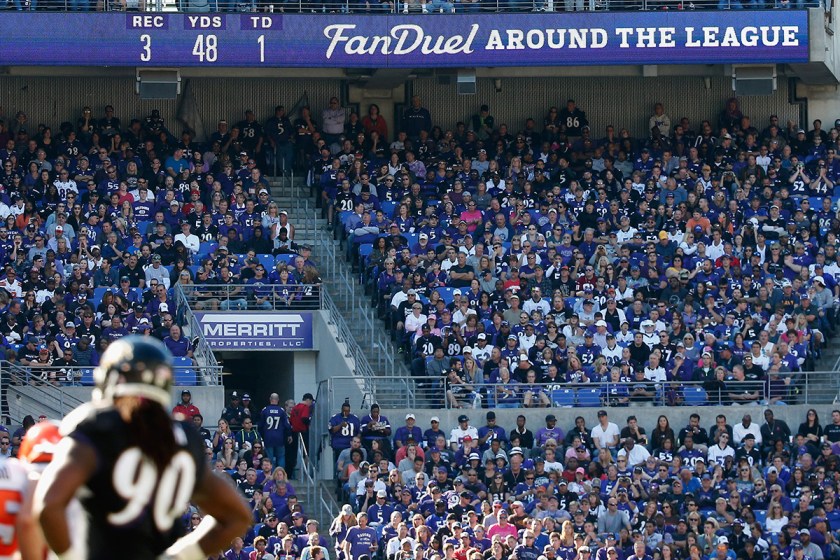
Just a handful of weeks ago on Nov. 18, the two major players in the daily fantasy world, DraftKings and FanDuel, agreed to join forces. The newly formed company won’t be up and running until the second half of 2017, but ESPN reports that it couldn’t have come at a better time. The companies decided to merge to grow their American user base of daily fantasy players, which is already 40 million strong, while also expanding into the season-long fantasy marketplace. But mostly, because they were slowly but surely going out of business due to mounting costs.
The merger came at a time when the two autonomous companies were starting to see a major drop-off in players due to increased commission fees and at least one reported scandal, involving an employee from DraftKings winning $350,000 on FanDuel. This subsequently led to the companies losing the right to run their businesses in a number of states due to gambling laws, including New York for a spell (daily fantasy, by some lawmakers, is seen as gambling). Just like casinos and horse racing, states have the right to regulate and tax what they believe to be gambling. The other side of the argument is that daily fantasy is a game of strategy a la “Magic: The Gathering” or “Dungeons and Dragons”—but with millions of dollars at stake, the scrutiny will likely continue well after the merger.

Certainly, the new company faces an uphill battle, and prior to the merger, ESPN’s Outside the Lines produced a long-read on what they called daily fantasy’s “implosion.” The fantasy format’s meteoric rise last year—remember when there was nary a second of free ad space on TV when some fantasy sports commercial wasn’t running?—led to a combined $3 billion in signup fees for the pair of companies in 2015. But if you’ve been following the NFL this season—that, too, has seen a steep drop-off in viewership—you’ll notice that the tremendous ad blitz from the daily fantasy businesses has all but dried up. This, says ESPN, is due to those skyrocketing legal fees, the industry’s questionable future, and decreased valuations.
But now that the two companies have finally merged, does this make ESPN’s exposé a moot point? You can come to your own conclusions by reading their piece here.
Not familiar with daily fantasy? No problem. Watch this 2015 video from HBO’s Last Week Tonight with John Oliver, which does a great job of explaining it (though the curse words are bleeped, it’s still a little not safe for work).
Whether you’re looking to get into shape, or just get out of a funk, The Charge has got you covered. Sign up for our new wellness newsletter today.

















